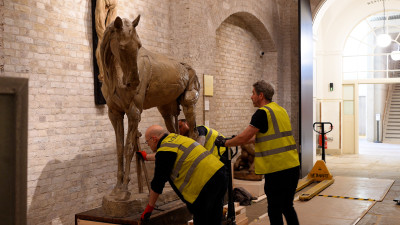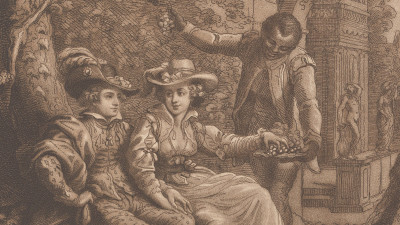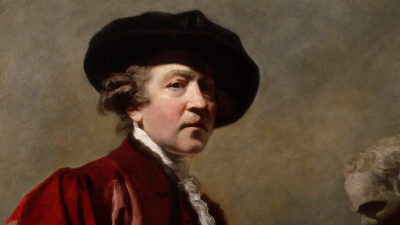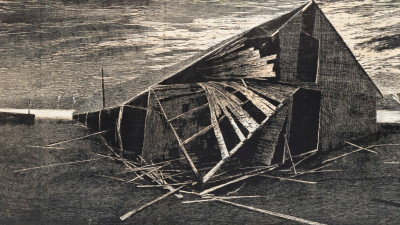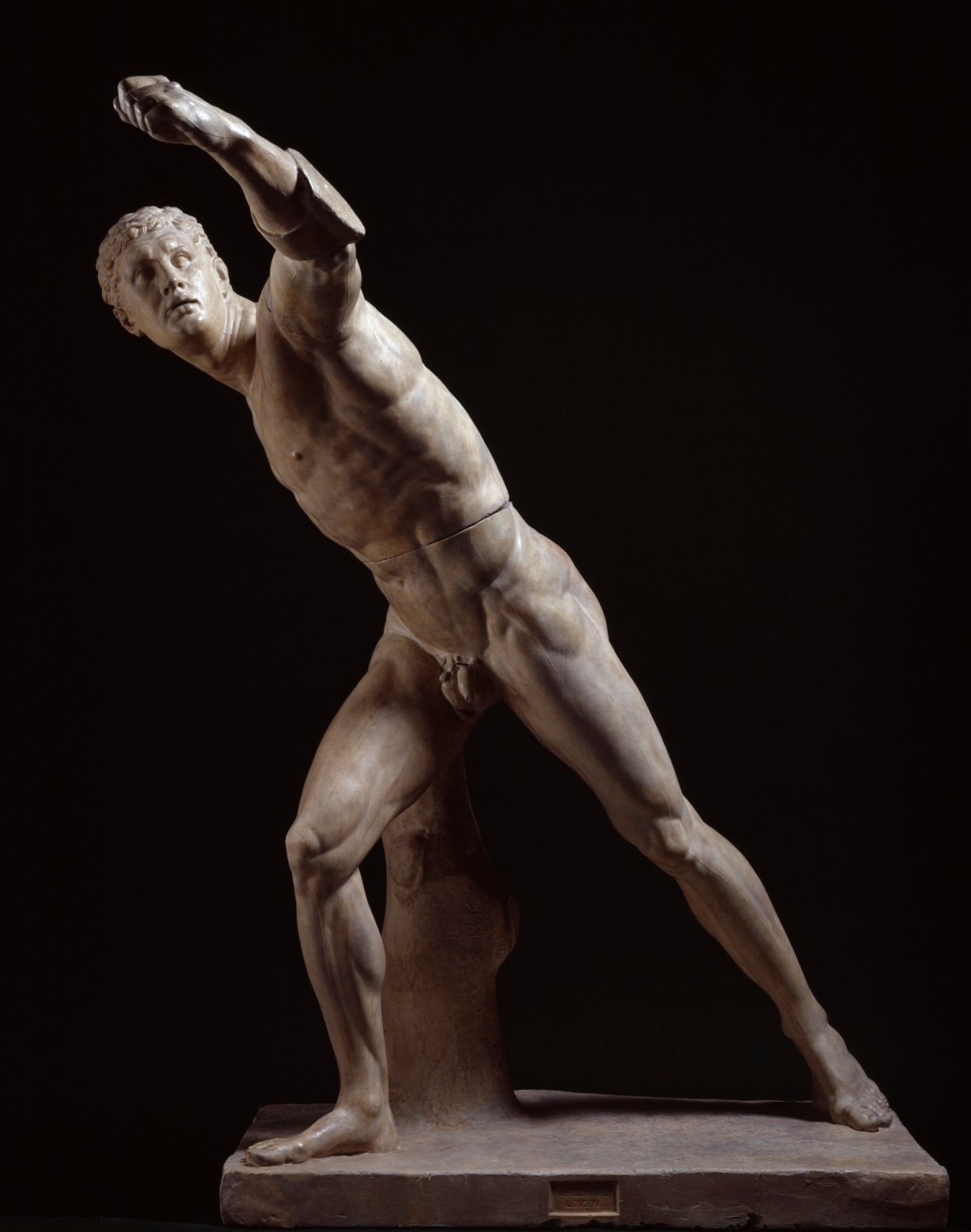
Agasias of Ephesus, Cast of the Borghese Gladiator, ?late 19th century.
Plaster cast. 1770 mm. © Photo: Royal Academy of Arts, London. Photographer: Paul Highnam.
This image is not available to download. To licence this image for commercial purposes, contact our Picture Library at picturelibrary@royalacademy.org.uk
Cast of the Borghese Gladiator, ?late 19th century
Agasias of Ephesus (b. ca. 75 BC- ca. 25 BC)
RA Collection: Art
This is a plaster cast made from a marble statue found at Nettuno near Anzio in 1611. It was in the Borghese collection by 1613 (hence the name by which it is commonly known, the Borghese Gladiator), and was the most admired of all the ancient sculptures in the collection. (In 1638 François Perrier devoted four plates to the work in his catalogue of engravings of the most beautiful statues in Rome. Napoleon Bonaparte purchased it (and a substantial part of the Borghese collection) in 1807, and from Napoleon’s collection it entered the Louvre. in his acquisition of a substantial part of the Borghese collection.
In 1629-30 the sculptor Hubert le Sueur made a bronze cast of the statue for Charles I (Royal Collection), which was placed in the Privy Garden at St. James’ Palace. This made the sculpture well-known in England, and by 1645 another cast was in the gardens at Wilton (and later Houghton). In the 18th and 19th centuries additional casts were in Woburn Abbey (cast by Richard Westmacott, 1827), and Knole. In the late 18th century the painter Anton Raphael Mengs, whose preference was for naturalistic execution and anatomical correctness, ranked the Borghese Gladiator above all other antique sculpture.
A plaster cast of the Borghese Gladiator was at the Royal Academy by 1795, the year Henry Singleton painted it in his group portrait The Royal Academicians in General Assembly. Another cast of the sculpture can be seen in Charles-Joseph Natoire’s 1746 view of the Académie Royale de Peinture et de Sculpture in Paris.
The statue is inscribed 'Agasias of Ephesus Son of Dositheos', although it is in the stylistic tradition of Lysippos and may be a copy of a work by his school dated ca.100 BC. The identification of the statue as a gladiator was made in the 17th century, and is still broadly accepted.
Further Reading
Ruth Guilding, Owning the Past: Why the English Collection Antique Sculpture, 1640-1840 (New Haven and London: Yale University Press, 2014)
François Perrier, Segmenta nobilium signorum et statuarum (1638)
Object details
1770 mm
Start exploring the RA Collection
- Explore art works, paint-smeared palettes, scribbled letters and more...
- Artists and architects have run the RA for 250 years.
Our Collection is a record of them.
